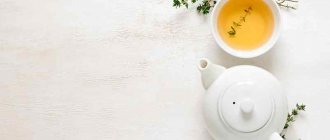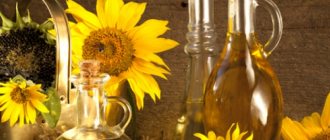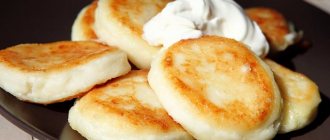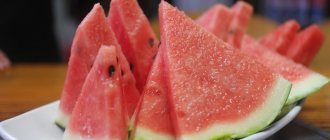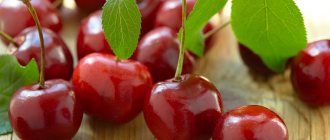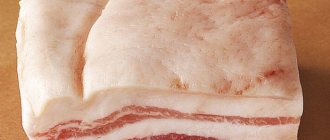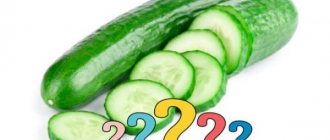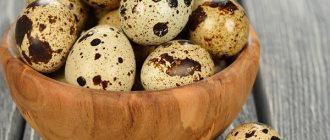There are not many feeding options for a newborn baby. Breast milk is still considered the best among them. With its help, the body can develop qualitatively and receive the entire necessary range of vitamins and minerals. The main thing for a woman is to carefully select her diet. That is why the question arises, what berries can a nursing mother eat?
According to nutritionists, a person will always be healthy if he eats natural food. When breastfeeding, there is a list of prohibited and permitted foods. Fruits, vegetables and berries should be treated carefully. Additionally, it is recommended to find out which of them you can eat. When consumed in moderation, berries are beneficial for breastfeeding.
First month after birth
During this period, a woman’s body needs vitamins and minerals more than ever. GW specialists strongly recommend excluding the following berries from your diet:
- red and orange;
- grape;
- plum;
- foods that are difficult to digest and linger in the gastrointestinal tract for a long time.
A nursing mother is allowed to eat no more than two hundred grams of fresh berries per day. They can also be included in freshly squeezed juices. It is advisable to only eat plants that are currently considered seasonal.
Avoid exotic options immediately, since their effect on the body is quite difficult to predict. Sellers often spray them with special chemical compounds that help preserve the fruit during long-term transportation. The quality of such a product is questioned. A newborn may also experience individual intolerances and allergies. Such negative reactions are often inherited.
About the benefits of berries during lactation
Experts recommend that breastfeeding women begin to diversify their diet from the first days after the birth of the baby.
To restore strength and complete lactation, young mothers first of all include greens and vegetables in their food, and after the baby reaches one month, the first berries may appear on the woman’s table.
How are these gifts from gardens and vegetable gardens useful for a nursing woman:
- Berries are a natural source of large amounts of vitamins and microelements that are essential for women and babies.
- Fruits take an active part in restoring metabolism after childbirth and contribute to the removal of waste products from the body.
- The gifts of nature normalize the functioning of the gastrointestinal tract and help eliminate constipation in the mother, which is often a big headache for a woman after childbirth.
- Some berries take an active part in normalizing hormonal balance in the postpartum period, which has a beneficial effect on increasing the amount of breast milk.
- With the help of fruits and delicious dishes prepared from them, specialists cope well with postpartum depression and stabilize the functioning of the central nervous system in women who are breastfeeding their babies.
Of course, not all gifts of nature are completely safe for a woman and her child. Some of them have a fairly high allergic activity, so before introducing each berry into your diet, you must always consult a doctor.
We recommend reading the article about fruits during breastfeeding. From it you will learn about fruits that are allowed for a nursing mother and that have a positive effect on the quality and quantity of milk.
And here is more information about watermelon during breastfeeding.
Introduction of berries into the diet
After the baby is one month old, new berries can be introduced into the woman’s diet. The newborn’s body gradually adapts to the external environment and is able to correctly perceive even more food. In the future, he will have to eat the usual food that his parents' meals consist of.
A nursing mother's milk is the first source of information about the outside world. Proper nutrition contributes to the production of the required amount of antibodies.
When breastfeeding, it is necessary to gradually introduce new fruits, vegetables and berries. Portions should be minimal, and you should wait a few days before the next use. If you notice a negative reaction from your baby, bad bowel movements or a rash, then you should discard the product being tested. In any case, it is important to consume a new product in limited quantities.
It is best not to consume products of questionable quality at all, because they can have a negative effect not only on the mother’s body, but also on the child.
Gooseberries are a product that does not cause allergies
Precautions
Despite the many beneficial and medicinal properties, eating berries is not recommended for everyone. Before trying the product, be sure to check if the disease you have been diagnosed with is on the list of contraindications.
Cloudberries contain a very small percentage of glucose, therefore they are considered low-calorie and are allowed for patients with hyperglycemia. But this only applies to fresh fruits. The consumption of preserves, jams and other sugar-rich sweets by people with diabetes is strictly prohibited.
The desire to share something tasty and healthy with a child is a wonderful desire. But in this case, it is necessary to gradually introduce the berry into the baby’s diet, and the first dose should be no earlier than 1 year.
Strong allergens
It is not recommended for a nursing mother to eat the following foods:
- all citrus fruits;
- red berries such as strawberries, strawberries, raspberries;
- sea buckthorn and its oil;
- exotic berries.
A woman should carefully monitor the reaction to this or that product in her body. If your stomach feels tight or hurts even from a small amount of the product, then you should not continue to eat it. You should control your desires well, because diathesis can occur even from a small amount of an allergenic berry.
Use in cosmetology
Tender and juicy cloudberry pulp rejuvenates the skin, making it elastic and radiant [7]. This is a laboratory-tested fact. Some studies indicate that cloudberry's ellagic acid may help prevent skin cancer. Its rich mineral and vitamin composition is important for restoring the beautiful appearance and health of hair and nails.
This is why many manufacturers of facial skin care cosmetics add northern berry extract to their products.
Allowed berries during breastfeeding
It is beneficial for a nursing mother to eat green and yellow apples. They help regulate intestinal motility. The fruit is best consumed without the peel, in which case the likelihood of an allergic reaction is reduced to zero. What berries and fruits can be eaten in moderation during breastfeeding:
We recommend reading: What fruits can a nursing mother eat?
- Peach contains a large amount of vitamins, phosphorus, iron and potassium. Regular consumption of the fruit improves stool and relieves pain that may occur in the intestines.
- Watermelon is necessary for high-quality kidney cleansing. With its help, metabolism is accelerated. The liquid, in turn, increases the volume of lactation. You should choose only fresh berries that do not contain chemicals.
- It is advisable to eat plums if you have constipation. However, it is not recommended to eat it raw when breastfeeding, since it has too active an effect on the intestines. During lactation, it is advisable to include a dried version in the diet.
- Pears contain a large amount of folic acid. The fruit is quite difficult for the digestive system. To speed up digestion, it is recommended to remove the peel and eat the pear along with the porridge. Fruit compote also has a positive effect on the body as a whole. The mother should carefully monitor the baby's reaction and stop using the product if the baby has colic.
- Apricots strengthen the immune system because they contain large amounts of beta-carotene. Fruit macroelements are necessary to strengthen human muscles and bones.
- Feijoa is considered an exotic product. It becomes ripe in late autumn. The berry is rich in vitamins and iodine. It can be used as a substitute for citrus fruits. Helps a nursing mother improve the functioning of the immune system.
- A large number of antioxidants are found in cherries, gooseberries and currants. The products are allowed during breastfeeding, as they can cause allergies only in case of individual intolerance. When introducing them into the diet, you should carefully monitor the baby’s reaction.
- Bananas rarely cause allergies. The only drawback is that it is difficult to guess what the fruit was processed with to increase its shelf life. It is strictly not recommended to eat a product that contains toxically unsafe impurities.
- Pomegranate will help enrich the body with iron. It should be eaten if there is a lack of hemoglobin. It is used to strengthen immune resistance.
- Children under one year of age need to receive all mineral salts and macroelements in sufficient quantities. They are found in grapes. The fruit is similar in structure to an apricot, so it is directly involved in the formation of the baby’s bones.
- You can enrich your body with potassium, magnesium and iron with the help of cherries. Thanks to its regular moderate consumption, metabolism is normalized and liver function improves. It also has a positive effect on the functioning of the child’s brain and improves the circulation of oxygen throughout the cells.
- Thanks to currants, excess fluid is removed from the body, so it is recommended to use it as a preventive measure for edema.
- Gooseberries in their pure form and as an infusion are used to prevent hypertension and atherosclerosis and help remove cholesterol from the body. Children are very rarely allergic to this product. It helps a woman get rid of inflammation, improves blood circulation and strengthens the immune system.
- Cherry contains a large amount of iron and iodine. It is used for anemia, the presence of pathologies of the lungs and kidneys, and helps improve the functioning of the gastrointestinal tract during constipation.
Nutritionists do not recommend that women who are breastfeeding eat excessive strawberries, strawberries and raspberries. You are allowed to eat only those berries of which you are completely sure of their quality. In this case, you should constantly monitor the reaction of the baby’s body and do not use the product if there is an individual intolerance.
Berries should be washed well before eating
Highly allergenic foods
It is important to remember that if mommy has her own allergic reactions to any berries or fruits, you should not add them to the diet, no matter what beneficial properties they have. In addition, you should never eat “forcefully”; such food will do more harm than good.
Fresh berries (for example, blackberries, strawberries, garden strawberries and others) are considered especially allergenic, so it is better to eat them not raw, but after heat treatment - in the form of fruit drinks and compotes . Thus, a nursing woman is allowed to drink up to 500 ml of lingonberry or cranberry juice per day, unless there are other contraindications.
To understand how a particular child reacts to a particular fruit or berry, you need to keep a food diary, which records all the baby’s reactions to new foods.
Many experts recommend completely excluding any citrus fruits (oranges, tangerines, grapefruits, etc.), as well as freshly squeezed juices prepared from them, from a nursing mother’s diet . Citrus fruits are a powerful allergen that can cause unwanted reactions in a child.
In addition, it is not recommended to consume fruits and berries in excessive quantities, which contain a lot of sugar and little fiber and have a high glycemic index. Such fruits include, for example, dates and watermelons. Pineapples and bananas contain a lot of sugar; papaya, persimmons, mangoes, grapes and tangerines are also at risk. The least amount of sugar is found in black currants and fresh apricots.
Exotic fruits can be eaten, but it is better in limited quantities and only after the child reaches the age of four months..
It has been scientifically proven that the human body better assimilates those fruits that grow directly in the region of residence.
An allergic reaction in a baby can be triggered by the mother’s consumption of cherries, sweet cherries or red currants, so the inclusion of such products in a woman’s menu during lactation, on the advice of some breastfeeding specialists, is best left until the child reaches the age of 10–12 months. Strawberries, wild strawberries, raspberries, blackberries, and sea buckthorn can cause stomach colic in a baby.
Video: manifestations of food allergies in young children
Doctors' opinion about allergenicity
However, among medical specialists there are different points of view on the causes of allergic reactions in infants. For example, Anna Aleksandrovna Redina, a pediatrician at the emergency pediatrics department, is of the following opinion:
More recently, pediatricians and gynecologists said that mothers need to adhere to a diet excluding “allergenic” foods to reduce the risk of developing allergic diseases in their children. Allegedly, sensitization (acquaintance with the allergen) begins in the womb. But recent world research proves that eating potential allergens during pregnancy and breastfeeding and the development of allergic diseases in a child (such as bronchial asthma, atopic dermatitis, hay fever) are not related to each other. There is no reliable data confirming this relationship.
This means that the likelihood of development is influenced by other factors: heredity, for example, living conditions and the individual predisposition of the child. Moreover, there are studies that confirm that eating peanuts and cow protein by a nursing mother reduces the risk of developing diseases in the baby. Therefore, as a pediatrician, I am of the opinion that during pregnancy and during breastfeeding, a mother, first of all, should eat a nutritious and varied diet. So that the child has the opportunity to receive a sufficient amount of substances necessary for his development. Of course, you don’t need to eat “harmful foods.” In the first month after childbirth, it is very important to be careful about your diet, focusing on the baby’s reaction. Because every child is individual, and everyone can have their own allergen. Therefore, it makes no sense to exclude everything that causes allergies in the majority.
Pediatrician, Department of Emergency Pediatrics, Redina Anna Aleksandrovna
https://www.littleone.ru/articles/more/zdorovieipsihologi/1650
Dermatologist, expert in the treatment of allergic rashes online, Anna Bolshakova, calls, among other things, to include seasonal fruits in the main diet, and to treat exotic fruits (for example, bananas) with caution . Anna Bolshakova recommends using weakly concentrated compotes made from dried apples, blueberries, pears and prunes.
Recommendations for use
Before eating any product, you should wash it well. To do this, you should use laundry soap. The occurrence of allergies can be reduced to zero if you remove the peel from the berry or fruit.
During pregnancy, a woman spends all her body's energy on its growth and development. Naturally, after childbirth, the body must be replenished with all the necessary vitamins and minerals. They are found in large quantities in berries. They should be used with great caution and carefully monitor the child’s reaction.
It is not recommended to completely exclude berries from your diet, since their components are necessary to maintain health and immunity. Before eating any new food, a woman should consult an appropriate specialist and adhere to all precautions.
